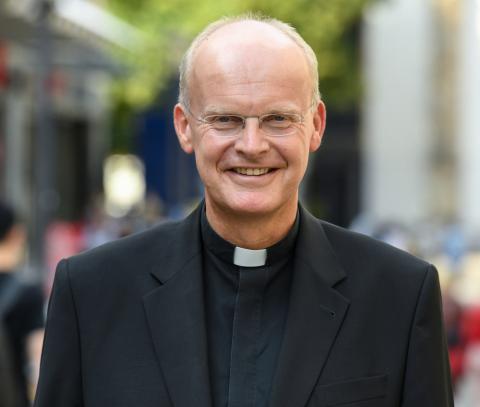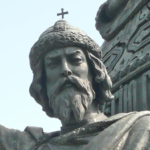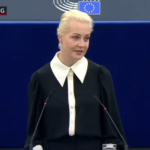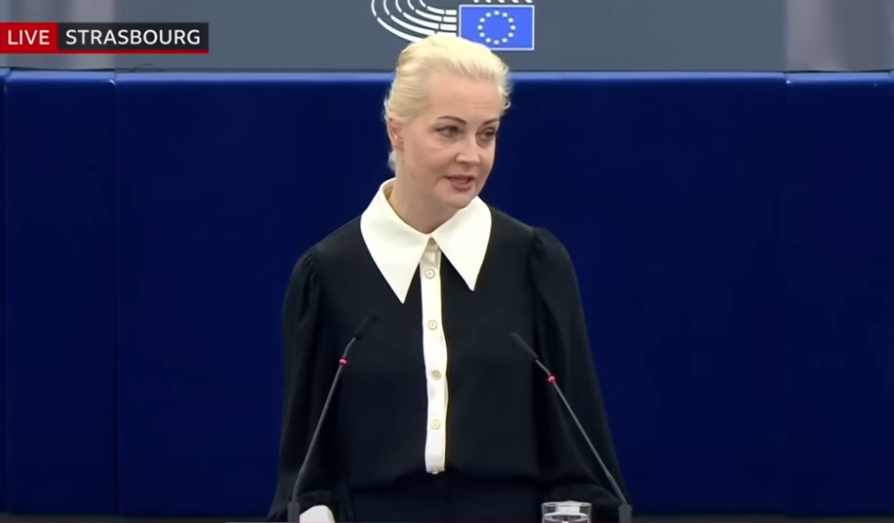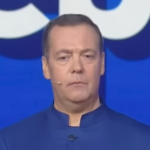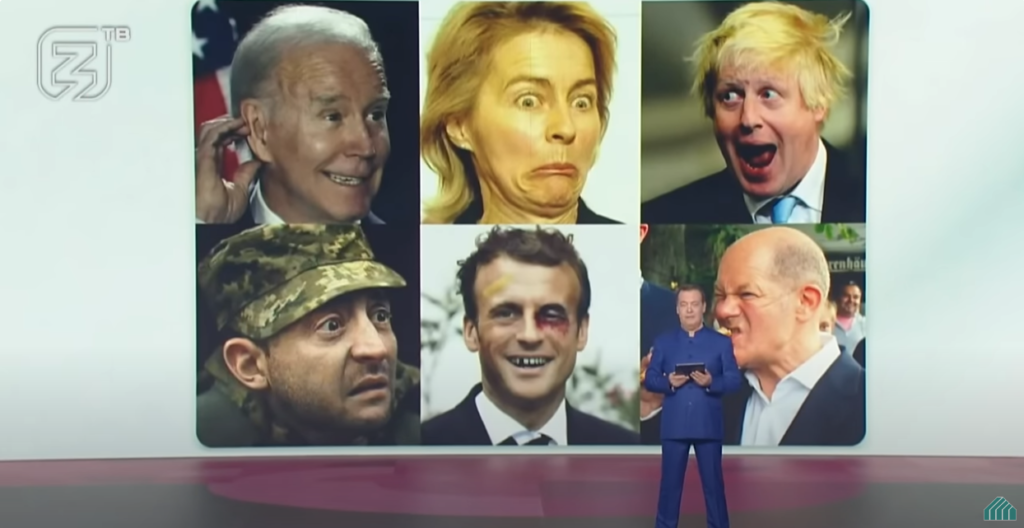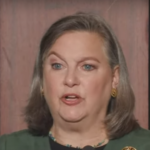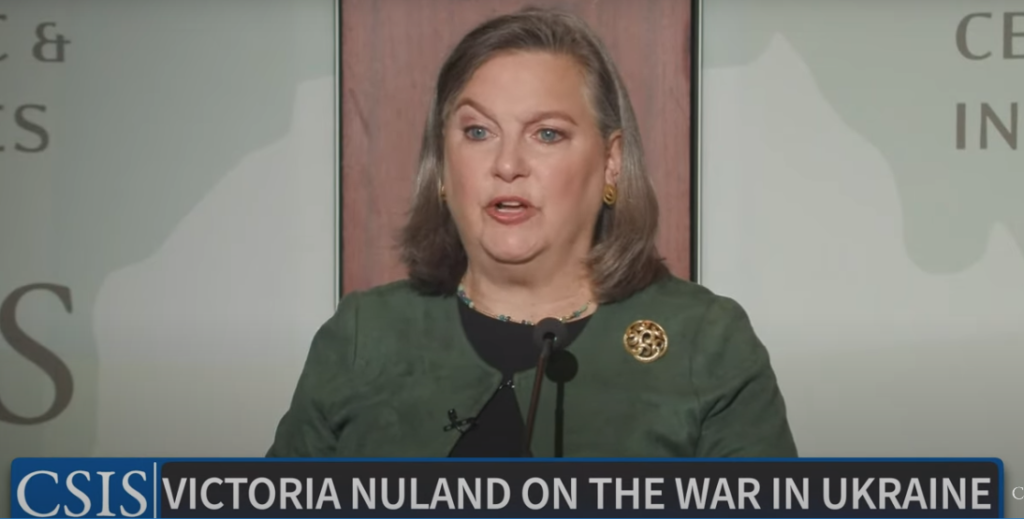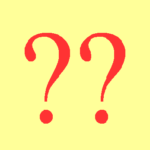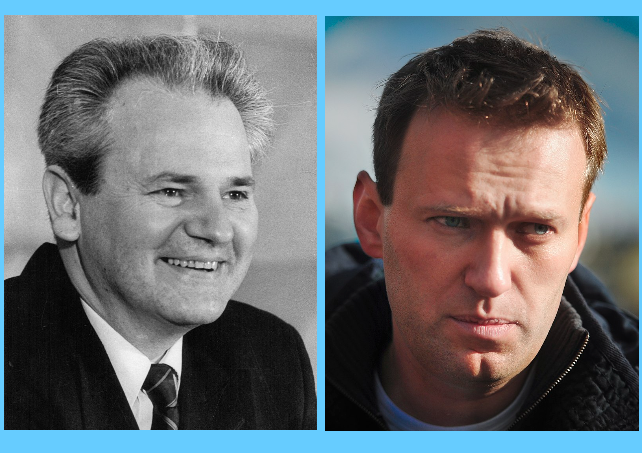Before medieval Rus’ split into its many parts, which in the course of hundreds of years led to the emergence of the present trio of Russia, Belarus and Ukraine, deep back in the 10th century it was ruled by Prince Vladimir, variously spelt as Volodymyr, Vladymir, Volodimir and the like. What a coincidence that today’s two parts of the medieval Rus’ are also governed by men whose names are reminiscent of the most famous medieval ruler Vladimir, with one of them being Vladimir Putin and the other – Volodymyr Zelensky. The few variants of spelling show accidentally how much dissimilar or rather how much similar are Russian and Ukrainian, descendants of the language used in Rus’ in the Middle Ages. The difference may be like that between Danish, Norwegian and Swedish, or Czech and Slovak, in which case mutual intelligibility stands at 95%, or that between German spoken in Bavaria or Berlin. Linguistic classifications are – just like anything that allegedly is part of otherwise objective science or scholarship – subject to political pressure to the effect that at one time in history two varieties of a language are recognized as… precisely two varieties, while at other historical times they are all of a sudden viewed as two totally separate tongues. The same was true of the Serbo-Croatian language now mercilessly split into three “very much” different languages of Croatian and Serbian and Bosnian. It was no less a figure than Bernard Shaw who is credited to have said that the United States and the United Kingdom are two countries divided by the common language, but we are digressing.
The medieval ruler of medieval Rus’ – Vladimir/Volodymyr (take your pick) – is regarded by both Russians and Ukrainians as a founder of their respective present-day states or – as it is customarily (yet somehow misleadingly) said in the English language – nations. He was the one who held the many territories in his iron grip, but first and foremost he was the one who in 988 joined Rus’ (present-day Belarus, Ukraine and Russia) to the Christian family of European states by having Rus’ christened. When Rus’ was about to be baptized, a name like Ukraine did not exist (and would not exist for many centuries to come); instead, the designation Belarus = White Rus’ had currency. It did not, however, denote a dukedom or principality, a kingdom or any other political entity: it denoted the Western part of the vast territories occupied by and collectively known as Rus’. Apart from White Rus’ we had Red Rus’ to denote the souther regions of Rus’ and Black and Green Rus’ the denote respectively the northern and eastern part of the same. There was a common word that resembled today’s name Ukraine, but it meant edge, border, or borderline. It had and still has a lot to do with the Slavic word meaning cut, cut off. With time it began to be applied to territories that were regarded as a country;s edge or that were cut off from a country. Such was the birthmark of the appellative Ukraine. By the way, the same could be observed in the former Yugoslavia, where the borderland between Croatia and Serbia is known as Krajina (cf.: u-kraine). Just as Ukraine was the south-eastern edge of the once large Polish-Lithuanian Commonwealth, an edge protecting the Commonwealth against Turks and the Grand Duchy of Moscow, so was Krajina a strip of land, guarding the Habsburg Monarchy, which comprised Croatia, against the Ottoman Empire, which at that time comprised Serbia. But again, back to the core story.
Vladimir, the ruler of all Rus’, had a hard time deciding to transform his nation. Christianity was by no means the only choice that he faced. Also Muslims and Judaic Khazars vied for the ruler’s attention, while Christians had already been split between the Western (later known as Catholic) and Eastern (later known as Orthodox) branches. Yet choose he had to, because stepwise, Vladimir along with the governing elite had grown out of the Slavic heathen beliefs. Much the same would play out a thousand years later when the elites of the heathen Soviet Union would begin to slough off the economically and politically pagan Marxism-Leninism and steer their country towards the family of the majority of the nations of the world by (re)accepting the political (democracy) and economic (free market) and financial (capitalism) credo.
Vladimir, the medieval ruler of Rus’, had a choice, as mentioned above. He could opt for accepting the faith of the Khazars, Muslims, Eastern or Western Christians. That would have automatically meant his alliance with Khazars, Muslims, Eastern or Western Christians. Vladimir decided to choose the Orthodox version of Christianity. He and his entourage became Christian, very soon to be followed by the rest of the Rus’ population. Vladimir just wanted to join his state to the family of Christian states. Why, at that time Europe was almos all Christian, either Catholic or Orthodox (Bulgarians and Serbs). Vladimir simply wished to (or felt compelled, or felt attracted to) turn Rus’ into a member state of Christendom. He may have thought that step would protect his subjects from being molested by the Christian rulers. Alas!
The chivalrous religious orders – non-state actors on the medieval political scene – were not only founded in the Holy Land during the notorious crusades: they were also founded in the Iberian peninsula, where they combated the Muslim invaders, and along the south-eastern Baltic littoral, where they were supposed to fight Lithuanian and Slavic pagans (in modern parlance, their task was to bring democracy and human rights). It took Lithuanians more time to let themselves be baptized, but medieval Russians did it, as said above, already in the 10th century. Never mind that detail. Approximately two and a half centuries later – i.e. when all of Rus’ was firmly in the Christian grip – the German Livonian order would continue to make inroads into Russian territory, which culminated in the famous Battle on the Ice of 1242, when Alexander nicknamed Nevsky, one of the many descendants of the same Vladimir that christened Rus’, reported a big victory.
It is worth bearing in mind that the Livonian Chivalrous Order tried to suppress and subdue chunks of northern Rus’ at precisely the time when almost all of Rus’ was struggling with non-Christian Mongols also known as Tartars. One might (naively) think, Western Christians would have been more than willing to come to the aid of their Christian Orthodox brothers, especially when those brothers were existentially threatened by non-Christian tribes. Sadly, that was not to be. Rus’ may have been Christian and still this act did not turn it into an acceptable member of Christendom.
At the very beginning of the 18th century, precisely when Russian Tsar Peter I was hurriedly and vehemently turning his backward Russia into a westernized, Europeanized modern state, it faced an invasion of Swedes, who were only stopped at the Battle of Poltava in 1709 (south of Kiev). At the very beginning of the 18th century, when Russia as an empire whose elites almost preferred to speak French rather than their native tongue and certainly admired everything and anything French, when native-speakers of French as tutors to the children and the youth of Russian aristocracy and gentry were in high demand (leaf through Leo Tolstoy’s War and Peace in the original and notice the many French dialogues inserted here and there, illustrating how firmly the French languages was rooted in high society), Russia was invaded by… a French-led coalition of European armies which managed to even capture Moscow (1812). Though two years later Russian armies marched into Paris, nonetheless Rus’ or Imperial Russia continued to admire everything and anything French while the West continued to spurn and denigrate Russia.
Fast forward to the 20th century and we see the same events and the same phenomena repeating themselves: yes, Soviet Russia repelled the Western invader and captured Berlin, but still and despite having been almost obliterated by the Western armies, and still and despite waging a four-decade long Cold War that ensued after 1945, Russian elites just couldn’t restrain themselves from kowtowing to the West and eventually trading their sovereignty for the promise of being accepted as full members of the Western, democratic, capitalistic world. You know, that’s the spell that MacDonald’s and Jeans and rock music casts on nations with an inferiority complex. This time, another Vladimir, better known as Vladimir Putin, tried to make overtures to the Western powers and clearly played up to them, offering Rus’ with all its citizens and resources as a joining fee. Even before Putin in his capacity of President, to please the West, Russia discarded and abandoned its communist (heathen, pagan) faith, dissolved the Warsaw Pact (the Eastern equivalence of the Western Atlantic alliance), let go of its fourteen republics which became separate, sovereign states, imbibed Western democratic political rules, internalized capitalist economic principles and even wanted to be admitted to NATO, while putting forward proposals of expanding the European cooperation from Lisbon on the Atlantic to Vladivostok on the Pacific Ocean. To no avail.
Russia was rejected, spurned, and frowned upon. Yes, Lithuania, Latvia and Estonia (all former Soviet republics, earlier also parts of the Russian Empire) could become NATO members, Ukraine and Georgia (also former Soviet republics, earlier also parts of the Russian Empire) were invited to join the alliance, yet Russia was denied. Why?
The medieval Vladimir, the ruler of medieval Rus’, had a choice between Khazars, Muslims, and Christians. Well, the present-day Vladimir has a similar choice between the Chinese, Iranians and the (post-Christian) West. A thousand years have passed and Rus’ – Russia – is faced with the same dilemma. A thousand years have passed and – as if nothing happened in the course of centuries – Russia is challenged again and again while its existence is threatened. Being snubbed by the West, Russia has gravitated into China’s embrace and has been made to ally itself with Iran and North Korea rather than becoming a NATO or EU member.
By the way, how did Russia become again pagan at the beginning of the 20th century, how did it become an atheistic Soviet republic? Why, while experiencing difficulties arising from the prolonged war, later to be known as the First World War, Russia fell prey to a series of events that today would be called colour revolutions: a more proper name for those occurring towards the end of the First World War would be calendar revolutions: the one that broke out in February is known as the February Revolution, while the other that took place in November – the November Revolution. How those revolutions come about? Just like the notorious Euromaidans in Kiev: Western powers (the British and the Germans) provided money and subversive activists (Kerensky, Lenin, Trotsky) to overthrow the ‘dictator’ commonly referred to as tsar, and then to topple the legitimate and democratic government. Just think of it: one hundred years apart, almost to the year (1917 – 2014) and the same scenario played out, earlier in Sankt-Petersburg/Petrograd, later in Kiev.
Whether Russia is Christian (from Vladimir to the outbreak of the October Revolution) or pagan (before Vladimir and during the time of the existence of the Soviet Union), whether it is capitalist or socialist, whether it emulates anything Western (French, American) or remains isolated, whether it expands its territory (especially under the rule of Peter I, Catherine I, Alexander I, Stalin) or shrinks, giving up on huge chunks of it (the 1917 Brest-Litovsk peace agreement with Germany, the 1991 dissolution of the Soviet Union), whether its is ruled by a tsar, a parliament, a secretary general of the communist party or a president, only one catchphrase rings in the Western mind: Ruthenia delenda est, come hell or high water.
A friendly reminder: the first Vladimir at the beginning of the millennial history of Rus’/Russia, the man who pondered whether to ally himself with Khazars, Muslims, or Christians, has come down in history as Great: Vladimir the Great. He is regarded as the father of the nation by Russians and Ukrainians and Belorussians. Which of the two present-day Vladimirs – the one ruling Ukraine or the one ruling Russia – will come down in history as great?
